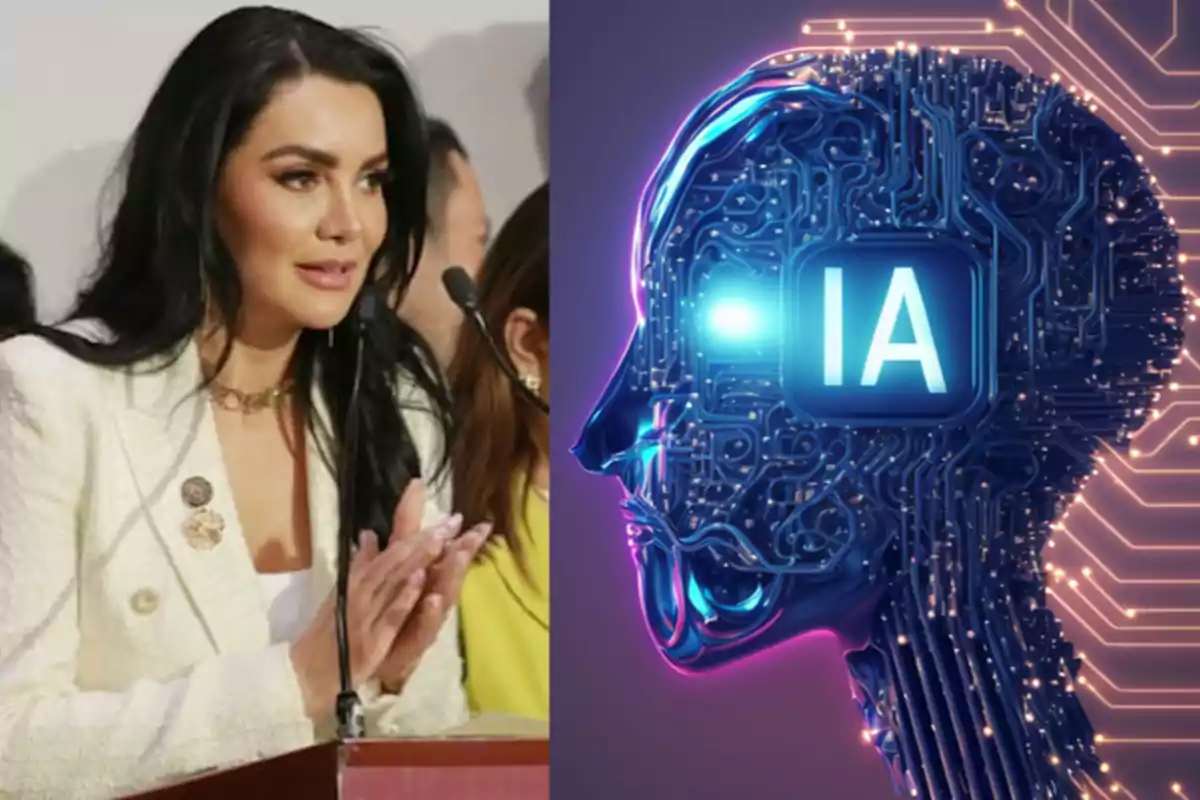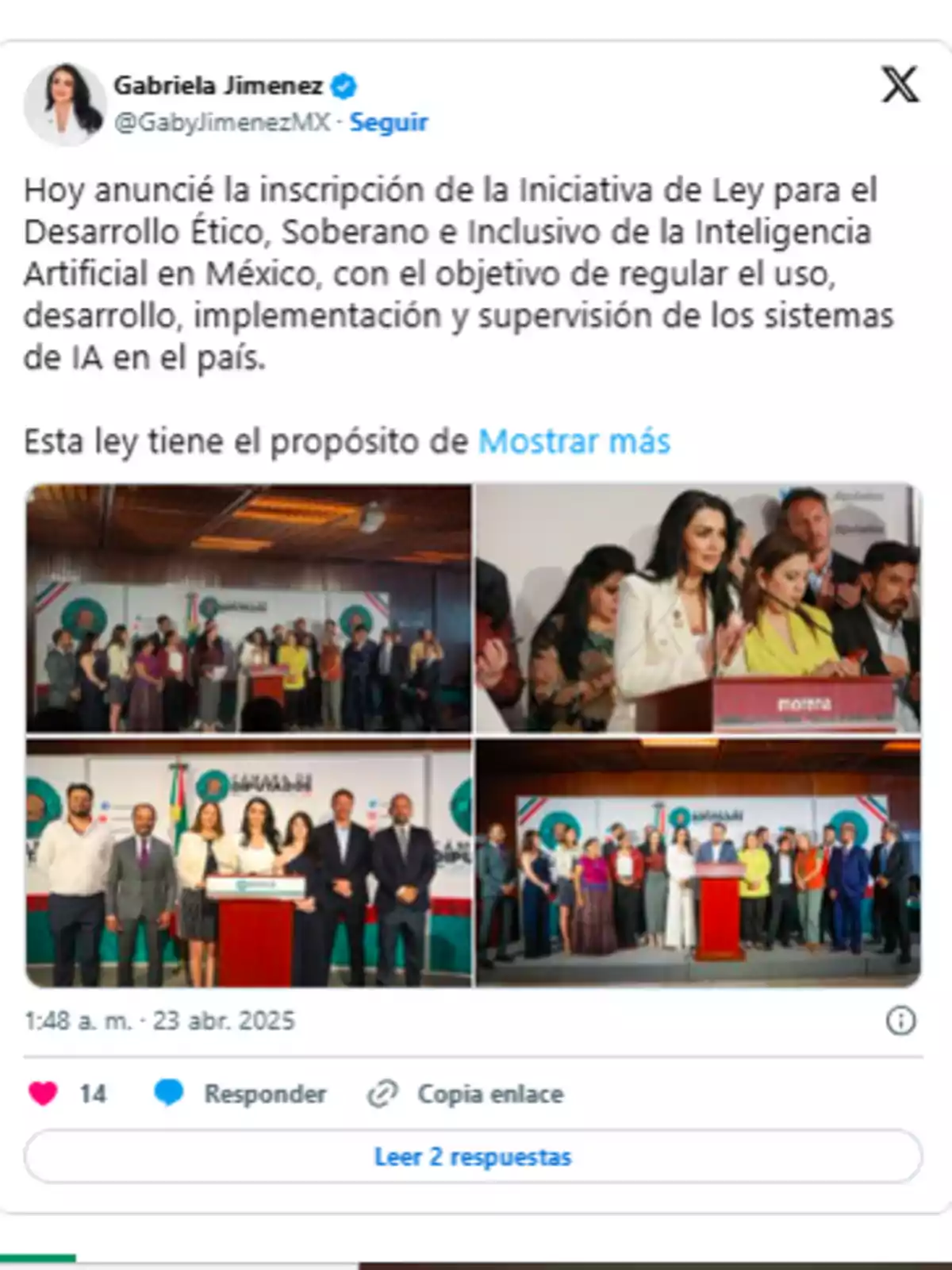
Morena seeks to control artificial intelligence to censor dissent
Gabriela Jiménez's initiative disguises state control as ethical regulation
The world is moving toward the free and responsible use of artificial intelligence (AI) as a tool for social, economic, and technological development. But in Mexico, Morena has decided to push a legislative initiative that, far from promoting progress, seeks to centralize state control over this key innovation.
The proposal, led by the Morena member Gabriela Jiménez, suggests the creation of the National AI Systems Registry and a National Artificial Intelligence Council. The two new entities will expand governmental presence with supposed regulatory purposes.
This initiative hides a clear intention of censorship, by allowing the State to classify and, eventually, block AI-caused content under opaque and subjective criteria.

The "risk traffic light": a technical disguise to impose ideological limits
One of the most alarming points of the project is the implementation of a "risk traffic light." The traffic light will label AI-caused content in four levels: minimal, limited, high, and prohibited.
Although presented as a tool to safeguard the population, this system could become an excuse to restrict creativity, critical thinking, and the free circulation of ideas.

Who will decide what is "prohibited content"? Based on what criteria? The initiative doesn't make it clear. If anything, the current Morena regime has shown its tendency to disqualify, marginalize, or silence those who think differently or expose flaws in its official narrative.
This traffic light could well be the prelude to an ideological control of artificial intelligence, arbitrarily limiting its possibilities.
Censorship disguised as protection and bureaucracy disguised as ethics
Although Deputy Jiménez tries to justify the proposal in the name of safety and the protection of minors, the arguments presented are vague and generic. The proposal leaves too much room for interpretation by political power.
It mentions avoiding emotional manipulation and mass surveillance, but it doesn't present real mechanisms of impartial supervision nor does it guarantee the protection of citizens' digital rights.

Mexico ranks seventh in AI adoption in Latin America, with an index of 46.85 points according to ILIA 2024. This reflects the growing interest of companies, universities, and citizens to innovate and improve their environment.
Far from accompanying this progress with policies that promote development, Morena prefers to create barriers, ambiguous regulations, and centralized councils that smell more like control than protection.
A true ethical and technical regulation must be built with experts, not with ideology. And it must guarantee rights, not limit freedoms. Artificial intelligence can't and should not be another instrument of political power to silence what is inconvenient for the regime.
More posts: